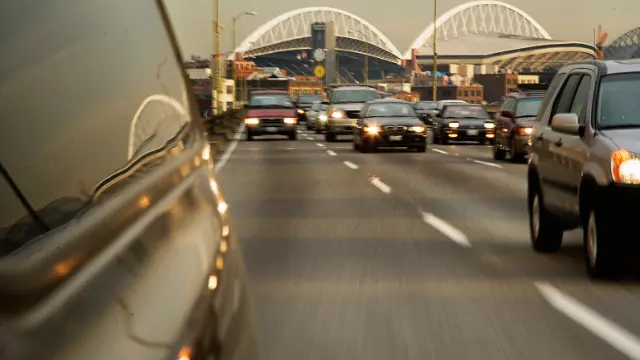

The Thrill and Danger of Street Racing
Imagine the roar of engines, the smell of burning rubber, and the adrenaline rush as two cars line up at a stoplight, waiting for the green to unleash their horsepower. The excitement lasts only seconds, but the legal and personal consequences can last a lifetime. Street racing and speed contests may seem like harmless fun to some, but they are serious criminal offenses with severe penalties.
Many drivers don’t realize that even revving an engine aggressively or peeling out of a parking lot could land them in legal trouble under the exhibition of speed laws. This article explores street racing laws, the legal consequences of speed contests, sentencing factors, and defense strategies for those charged with these offenses.
Street Racing: What the Law Says
Street racing refers to any unauthorized competition between vehicles on public roads. It often involves two or more drivers accelerating rapidly, reaching excessive speeds, and sometimes blocking traffic to create a makeshift racetrack.
How Street Racing is Prosecuted
Laws against street racing exist in every state, but penalties vary. In many jurisdictions, a driver can be charged with street racing even if they are not the one speeding—simply participating in organizing or encouraging the race can result in criminal charges.
Common elements required for a street racing charge include:
- Two or more vehicles engaged in a competitive speed contest.
- Use of public roadways for racing.
- Intent to race rather than normal speeding.
In California, for example, Vehicle Code 23109 VC prohibits street racing and imposes penalties such as mandatory license suspension and vehicle impoundment.
Legal Consequences of Street Racing
Street racing is typically classified as a misdemeanor, but aggravating factors can elevate it to a felony. The penalties may include:
- Fines: Ranging from $500 to $5,000, depending on the state.
- License Suspension: A minimum of six months to two years.
- Jail Time: Some states impose up to one year in jail for first-time offenders.
- Vehicle Impoundment: Law enforcement can seize and hold vehicles used in illegal races.
- Increased Insurance Rates: A conviction can double or triple car insurance premiums.
In extreme cases, if street racing results in injury or death, it can lead to charges of vehicular manslaughter or even murder.
Speed Contests: When Fast Driving Becomes a Crime
Not all illegal speed-related offenses involve organized races. Speed contests refer to any unauthorized display of acceleration or reckless speed, even without direct competition.
What Qualifies as a Speed Contest?
- Rapid acceleration from a stoplight to show off.
- Peeling out or fishtailing in a parking lot.
- Revving an engine aggressively to provoke others.
- Attempting to outpace another car, even briefly, without pre-arranged racing.
Many drivers don’t realize that speed contests are illegal even if no other cars are directly involved. In some states, this falls under exhibition of speed laws, leading to penalties almost as severe as street racing charges.
Legal Consequences of Speed Contests
Penalties for speed contests vary, but they often include:
- Misdemeanor charges with fines up to $2,500.
- Community service or probation.
- Mandatory driving courses or traffic school.
- Possible jail time, especially for repeat offenders.
In Texas, for instance, a first-time offense can lead to a $1,000 fine and up to 180 days in jail. A second offense increases penalties, including mandatory vehicle forfeiture.
Sentencing Factors in Street Racing and Speed Contest Cases
Courts consider multiple factors when determining the severity of sentencing for racing-related offenses, including:
- Speed above the limit – Higher speeds lead to harsher penalties.
- Location of the race – Racing near schools, parks, or pedestrian zones increases consequences.
- Past driving record – Prior offenses result in enhanced sentencing.
- Accidents or injuries – If the race caused a crash, felony charges may apply.
- Endangering others – Racing with passengers, bystanders, or blocking intersections makes the offense more serious.
Judges sometimes allow alternative sentencing for first-time offenders, such as defensive driving courses, community service, or plea deals to reduce charges.
Case Study: How One Driver Beat a Street Racing Charge
Background
Marcus, a 24-year-old college student, was arrested for street racing after a late-night drive with friends. He had revved his engine and sped off at a green light alongside another car. An officer nearby pulled him over, charging him with street racing and reckless driving.
Defense Strategy
Marcus’ lawyer developed a defense based on:
- Lack of Competition: The other driver was a stranger, and there was no prearranged race.
- Challenging the Officer’s Observation: There was no direct evidence proving Marcus intended to race.
- Character Witnesses: Marcus had a clean driving record and no history of reckless behavior.
Outcome
Instead of a criminal conviction, Marcus was offered a plea deal, allowing him to complete traffic school and pay a fine without a permanent mark on his record.
Final Thoughts
Street racing and speed contests are thrilling but carry severe legal and financial consequences. Understanding the law and seeking legal assistance can help minimize penalties and protect your future. If you or someone you know is facing charges, consult a criminal defense attorney immediately.
Frequently Asked Questions (FAQs)
- Is street racing a felony? It depends on the state. Street racing is usually a misdemeanor, but it can be charged as a felony if it results in injury, death, or repeat offenses.
- Can my car be impounded for street racing? Yes, many states allow police to seize and hold vehicles involved in illegal races.
- Can I be charged for revving my engine? Yes, in many places, aggressive revving falls under the exhibition of speed laws.
- What should I do if I get a street racing ticket? Contact a criminal defense attorney immediately to explore possible defenses and plea deals.
- Will a racing conviction affect my insurance? Yes, insurance companies consider racing-related convictions a high-risk offense, often leading to policy cancellations or significant rate increases.



